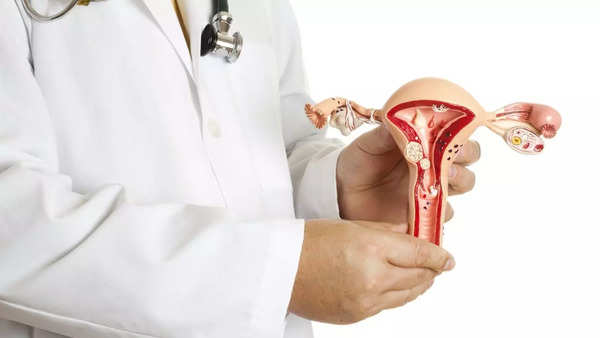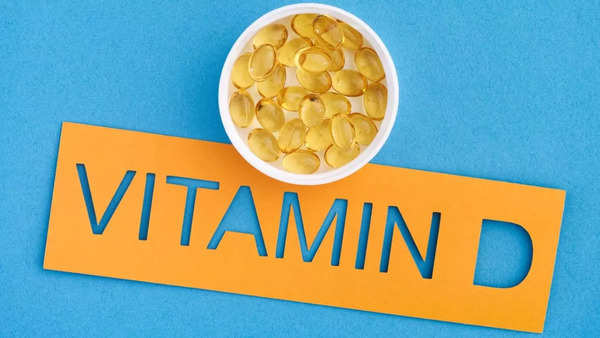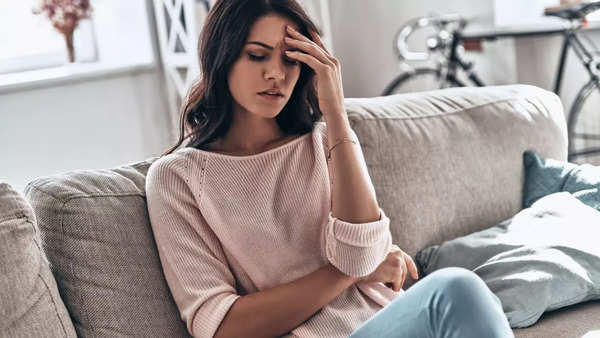Uterine fibroids, a common condition that affects women, can be extremely painful and uncomfortable. The discomfort intensifies during the menstrual cycle every month as the condition can extend bleeding to several days and cause severe stomach pain. Many studies have investigated certain lesser-known causes behind uterine fibroids, especially Vitamin D deficiency.
Genetic causes and prolonged exposure to estrogen are cited as common reasons behind these solid tumours that develop in the uterus. Getting early menses, obesity, and poor diet low in fibre, could be some of the other reasons behind fibroids.
However, when it comes to Vitamin D deficiency behind development of uterine fibroids, studies do not confirm or rule out its role.
Here’s what we know.
What are uterine fibroids?
Uterine fibroids are common, non-cancerous growths on the uterus, which are made of muscles and connective tissues. They are commonly reported in women aged 35-55 and can have symptoms like heavy menstrual bleeding, back pain, frequent urination and pain during sex.
Causes of uterine fibroids

Fibroids are commonly seen in women owing to various factors such as age, getting menses at a younger age, alcohol consumption, family history, obesity, vitamin D deficiency, and diet high in processed food and low in fresh green vegetables, fruits, and whole grains.
“The symptoms of it are painful menses, pelvic pain, constipation, longer periods, and stomach pain,” says Dr Mansi Sharma, Consultant- Obstetrician & Gynaecologist, Motherhood Hospital, Kharadi.
Can Vitamin D deficiency cause fibroids?

Several studies have found a correlation between low levels of vitamin D and an increased risk of developing uterine fibroids. A study published in the journal Epidemiology noted that women with sufficient levels of vitamin D had a 32% lower risk of developing fibroids compared to those with a deficiency.
Vitamin D helps regulate the expression of genes involved in cell proliferation and differentiation, preventing abnormal cell growth in the uterine tissue.
In a study published in Frontiers, the researchers found that a one-SD decrease in serum vitamin D levels was associated with higher risk of uterine fibroids, an observation consistent with previous studies describing a critical biological role for vitamin D in the development of uterine fibroids.
Though promising these studies do not provide a conclusive evidence and further research is required to establish a stronger connection.
“Vitamin D has anti-inflammatory and anti-fibrotic properties, which may contribute to its protective role against fibroids. Chronic inflammation is thought to play a role in fibroid development, and vitamin D’s ability to reduce inflammation may help mitigate this risk,” says Dr. Sadhna Singhal Vishnoi, Senior Consultant – Obstetrics and Gynecology, Cloudnine Group of Hospitals, New Delhi, Punjabi Bagh.
Vitamin D also aids in regulation of estrogen levels, and since fibroid growth is often estrogen-dependent, maintaining adequate vitamin D levels may help keep estrogen in check and reduce fibroid growth.
Signs of Vitamin D deficiency in women

Vitamin D deficiency is common in women and occurs when they are unable to meet their daily intake of vitamin D through their diet. Over time, this can lead to several issues with your muscles and bones. The body uses Vitamin D for the development and maintenance of the bones. It plays a crucial role in supporting and strengthening the nervous system, musculoskeletal system, and immune system.
Women with vitamin D deficiency may experience a range of symptoms that shouldn’t be overlooked.
“Vitamin D deficiency in women can manifest through various symptoms. These may include muscle weakness, bone pain, increased risk of fractures, fatigue, and mood changes,” says Dr Ranjana Sharma, Senior Consultant, Obstetrics and Gynaecology, at Indraprastha Apollo Hospitals, Delhi.
Here’s a list
Easily getting tired even after taking sufficient rest
Extreme pain in the lower back and joints
Sudden mood changes
Hair thinning or hair loss
Slow wound healing
Irregularities in the menstrual cycle
Muscle weakness
Frequently falling ill
“If you are suffering from vitamin D deficiency then you should try getting more exposure to sunlight. Aim for at least 10 to 15 minutes of exposure to sunlight every day to manage your vitamin D deficiency. Other lifestyle changes like eating foods that are rich in vitamin D, avoiding eating processed foods, and exercising regularly for more than 45 minutes a day,” says Dietitian Nisha, Consultant-Dietary, Nutrition & Lactation, Motherhood Hospitals, Gurgaon.
Here are some of the surprising uses of curd





